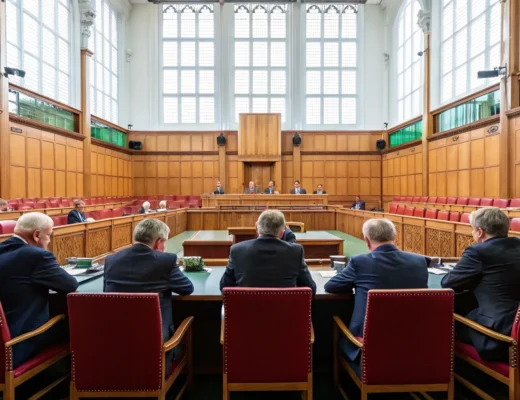Economic experts foresee a potential reduction in the UK’s inflation rate below the Bank of England’s 2% target, owing to considerable declines in energy costs last April.
This is primarily caused by the drastic decrease in global crude oil prices, an outcome of the lessened demand due to the COVID-19 crisis. This in turn influences transportation and heating costs, thereby pulling down the inflation rate.
The pandemic’s impact on consumer spending also plays a part. With people spending less on non-essentials, inflation is further lowered. This outcome could prompt regulators to rethink their monetary policies to achieve economic growth and maintain price stability.
The existing inflation rate in the services sector may affect the decision to reduce the interest rate this June. A drop in the overall inflation rate below 2% could be a significant economic landmark, thus influencing the possibility of a rate drop.
Such a decrease impacts investments, corporate earnings, and employment. Consumers may benefit from lower prices, possibly increasing their purchasing power. On the other hand, low interest rates may affect savings returns. Despite this, such decisions could significantly alter the UK’s financial landscape.
This inflation decrease can be attributed to the changes in the energy sector, including a 12% cut in the cap on residential electricity and gas prices in April. This lowered cost pressures throughout the country and increased consumer spending power.
UK inflation dip prompts policy reassessment.
Economists generally view this favorably as it may stimulate further economic growth. Furthermore, it led to greater renewable energy investments, furthering Britain’s sustainability goals.
If inflation dips below 2%, it would be the smallest overall rate since April 2021. Despite attempts to stabilize the economy, inflation peaked in October 2022 at 11.1%, largely due to a weak currency that heightened national costs. However, current trends suggest more promising economic conditions.
Renowned economist Ashley Webb forecasts that the rate will decrease to below 2% by April and could fall further to 1.0% later. This prediction may influence the timing of the initial interest rate reduction from 5.25%. Webb notes a faster recovery with a lowered rate, again stimulating investment activities. However, the exact timing of rate reductions will depend on the state of the economy in the coming months.
A recent economist survey anticipates a slightly higher overall rate at 2.1%. Governor Andrew Bailey commented that the Bank of England is ready to reduce rates in the summer, with the precise timeframe being dependent on forthcoming economic trends. In conclusion, future monetary policy decisions will be influenced by several factors, with the central bank standing ready to adapt according to the economy’s direction.







